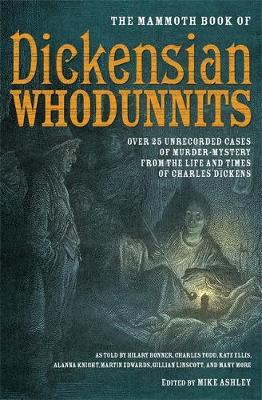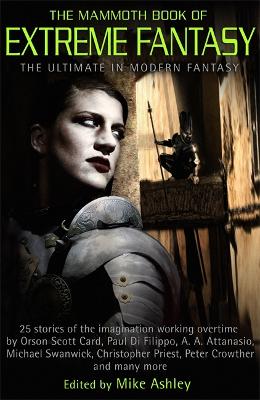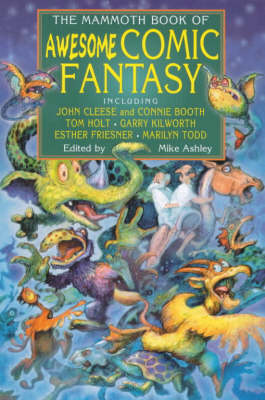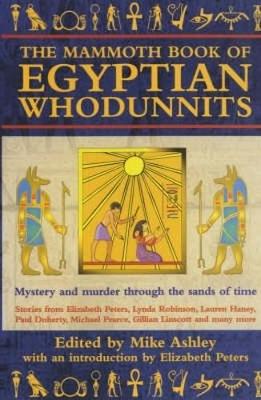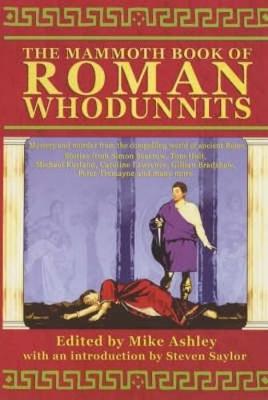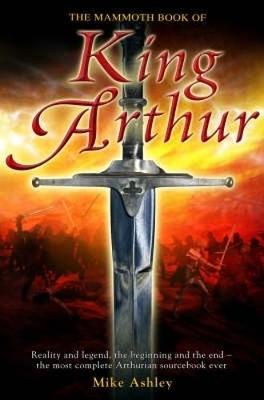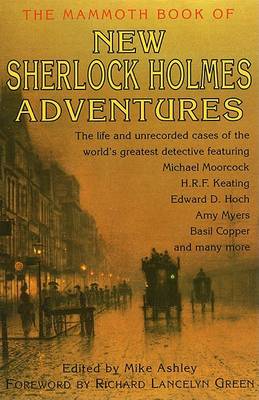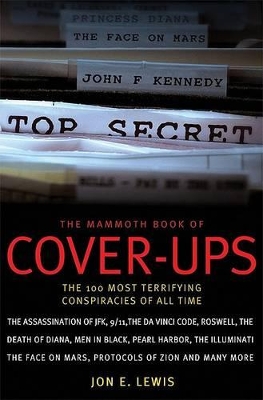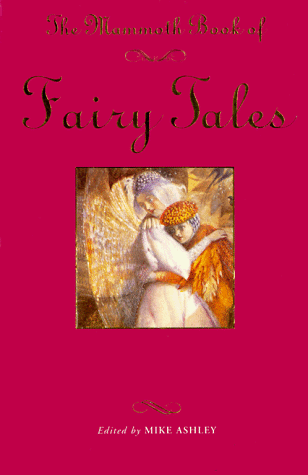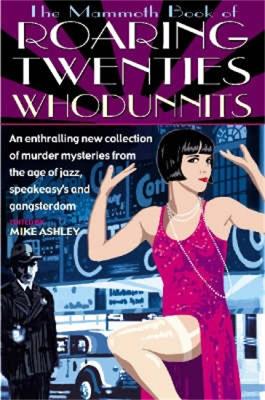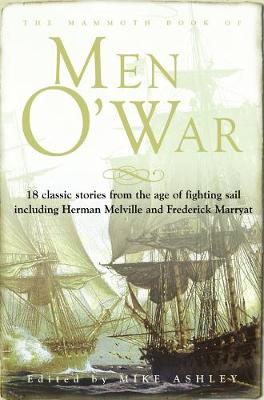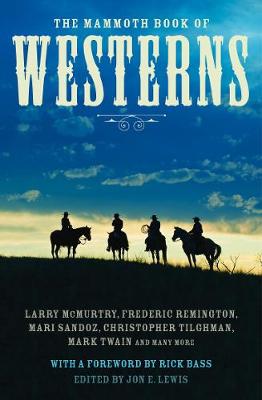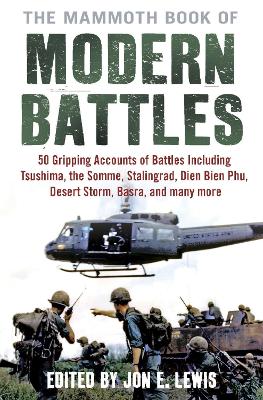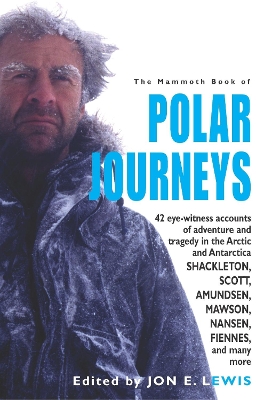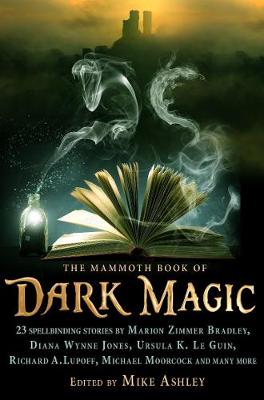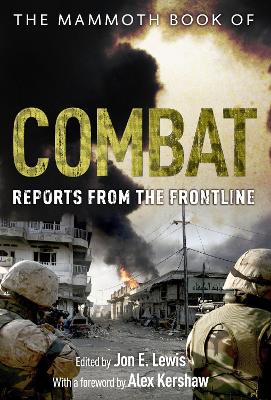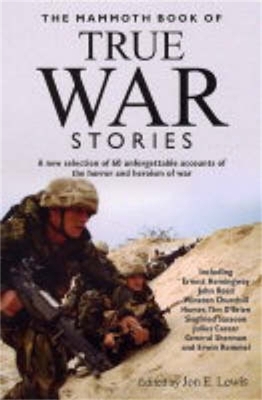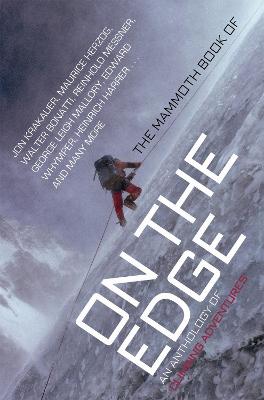Mammoth Books
47 total works
Charles Dickens created some of the most memorable characters in English literature. But just what became of the convict that frightened young Pip in Great Expectations?
Was he guilty, or framed? And what really did become of Edwin Drood? Was the case ever solved? Mike Ashley presents over 25 vivid new whodunnits from the world of Dickens - recorded for posterity by such writers as Michael Pearce, Amy Myers, Peter Tremayne, Alanna Knight, Kage Baker, and Edward D. Hoch.
Many of the stories feature one or more of Dickens's characters, as a sleuth or as the victim of crime; while others are set in Dickens's real life, with him investigating people closely associated with him, such as Wilkie Collins, Elizabeth Gaskell or Hablot Browne. Interlinking the stories is a narrative that brings alive Dickens's own life and part in the early development of crime sleuthing.
The stories include: Miss Havisham's Revenge by Alanna Knight, in which we discover the part Estella Havisham played in the fate of Bentley Drummle; Murder in Murray's Court by David Stuart Davies, in which Oliver Twist has to help the Artful Dodger who has been accused of murder; The Thorn of Anxiety by Keith Miles, in which the mystery of Edwin Drood is at last solved; The Divine Nature by Kate Ellis, in which David Copperfield finds himself investigating the disappearance of Edward Murdstone; The Letter by Joan Lock, in which the skills of Inspector Bucket are once again put to the test in solving a crime that apparently never happened.
In extreme fantasy anything can happen. In Mike Ashley's breathtaking new anthology the only rules are those the writer makes - these are stories to liberate both the writers' and readers' imagination. They will take you to hell and back (literally - two of the stories involve hell in ways never explored before).
For too long fantasy fiction has become synonymous with vast heroic-fantasy adventures in imitation of The Lord of the Rings, but the genre has always been far greater than dwarves and elves. Today many writers are rediscovering the wider world of fantasy and creating bold new ideas or magically reworking older arts.
Ashley selects 25 stories by the likes of Orson Scott Card, Paul Di Filippo, A. A. Attanasio, Michael Swanwick, Christopher Priest and Peter Crowther, arranged in ascending order of 'extremeness'.
The anthology opens with a story that takes us beyond Middle Earth in 'Senator Bilbo' by Andy Duncan - showing what happens when a radical descendant of his famous namesake tries to introduce immigration control - and reaches the ultimate in 'The Dark One' by A. A. Attanasio, a rite of passage story where you, the reader, discover you are being tested to become the successor to Satan.
Other stories include:
A man with a terminal disease looks for a cure in a world where Edward Lear meets Lewis Carroll.
A man decides to banish all language.
A tour of Hell by the boatman himself.
The great comic stars of Hollywood find themselves seeking their lost world.
A magical experiment recreates the Crucifixion.
Suddenly all colour drains out of the world.
A magical recreation of Chinese fantasy cinema where a magician and his adepts fight the flying dead.
The Arthurian legends arose from the exploits of not just one man, but at least three originating in Wales, Scotland and Brittany The true historical Arthur really existed and is distantly related to the present royal family The real Arthur and the real Merlin never knew each other The real Lancelot was not British but was closer to a sixth-century asylum-seeker The Holy Grail legend probably grew out of a cosmic catastrophe that could have destroyed most of civilization
The Assassination of JFK, 9/11, the Da Vinci Code, The Death of Diana, Men in Black, Pearl Harbor, The Illuminati, Protocols of Zion,Hess, The Bilderberg Group, New World Order, ElvisFluoridization, Martin Luther King's murder, Opus Dei, The Gemstone Files, John Paul I, Dead Sea Scrolls, Lockerbie bombing, Black helicopters...
In other words everything 'they' never wanted you to know and were afraid you might ask!
Jon E. Lewis explores the 100 most terrifying cover-ups of all time, from the invention of Jesus' divinity (pace the Da Vinci Code) to Bush's and Blair's real agenda in invading Iraq. Entertainingly written and closely documented, the book provides each cover-up with a plausibility rating.
Uncover why the Titanic sank, ponder the sinister Vatican/Mafia network that plotted the assassination of liberal John Paul, find out why NASA 'lost' its files on Mars, read why no-one enters Area 51, and consider why medical supplies were already on site at Edgware Road before the 7/7 bombs detonated.
Just because you are paranoid, it doesn't mean that they aren't out to conspire against you.
Eighteen classic sea-faring tales by the best-loved writers of the genre, including Patrick O'Brian, C. S. Forester, Richard Woodman, Herman Melville and Frederick Marryat. Featuring favourite heroes such as Captain Jack Aubrey, Adam Hardy, Horatio Hornblower and Nathaniel Drinkwater.
These tales vividly re-create the age of the glory days of sail, aboard the great ships that sailed for trade, discovery or warfare. They include storms and shipwrecks, the great sea battles of the Napoleonic era and the sheer, dangerous excitement of life before the mast.
The Western, though a singularly American art form, is one of the great genres of world literature with a truly global readership. It is also durable despite being often unfairly maligned.
Ever since James Fenimore Cooper transformed frontier yarns into a distinct literary form, the Western has followed two paths: one populist - what Time magazine famously billed 'the American Morality Play' - capable of taking many points of view, from red to redneck, but always populist, with a sentimental attachment to the misfit; the other literary - eschewing heroism, debunking with unsettling candour many of the myths of the West.
It can sometimes be difficult to draw a sure line between the two forms, but both are represented in this outstanding collection which includes stories by Rick Bass, Walter Van Tilburg Clark, Larry McMurtry, Mari Sandoz, Christopher Tilghman, and Mark Twain, among many others.
From the start of the 20th century to the most recent major offensives, here are fifty accounts of the battles that made the modern world, described in superb detail by historians and writers including John Keegan, Alan Clark, John Strawson, Charles Mey, John Pimlott, and John Laffin.
All the major conflicts are covered, from two world wars, through Korea, Vietnam, Bosnia, Chechnya, to Iraq and Afghanistan.
Among the battles featured are: the Somme, Passchendaele, Battle of Britain, Stalingrad, El Alamein, Monte Cassino, Omaha Beach, Iwa Jima, Dien Bien Phu, Ia Drang, Hamburger Hill, Desert Storm, Kabul, Baghdad, and Basra.
Exerting a magnetic pull our imaginations, the poles have been the object of many gripping first-hand accounts of exploration - literally, journeys to the ends of the earth
A passport to the last wildnernesses of Earth, this is the definitive collection of first-hand accounts of polar exploration - 50 true stories of intrepid travel through the desolate and dangerous regions of both Arctic and Antarctic.
Beginning with Sir John Franklin's starvation trek through Alaska in 1821 and ending with Vassilli Gorshkovsky's northern expedition aboard a creaking ice-breaker in 2005, these true stories encompass every kind of triumph and disaster.
The inspired but doomed courage of Captain Scott, and the marvellous leadership of Shackleton are well known, but here are many other stories including:
The Bear, by Frederick A. Cook, 1908
Meeting with Polar Eskimos by Knud Rasmussen, 1932
By Dog-Sledge to the Top of the World, by Wally Herbert, 1968
Hell on Earth by Reinhold Messner, 1989-90
Solo by Pen Haddow, 2003
And many more.
Twenty-three spellbinding tales of sorcery, wizardry and witchcraft, of the ceaseless battle between good and evil.
From dark lords and epic clashes between the forces of good and evil to a child's struggle to control magical powers for the first time this wonderfully varied collection comprises stories by the most outstanding writers of fantasy: A. C. Benson, James Bibby, Marion Zimmer Bradley, Louise Cooper, Ralph Adams Cram, Peter Crowther, Esther M. Friesner, Tom Holt, Doug Hornig, Diana Wynne Jones, Michael Kurland, Tim Lebbon, Ursula K. Le Guin, Richard A. Lupoff, Michael Moorcock, John Morressy, Tim Pratt, David Sandner, Lawrence Schimel and Mike Resnick, Darrell Schweitzer, Clark Ashton Smith, Steve Rasnic Tem and Robert Weinberg.
Over a hundred eyewitness accounts of the reality of combat from some of the finest writers of the last century and our own. Lucid, vivid, complex images of conflict, from Walt Whitman on the American Civil War to contemporary reporting from Afghanistan.
The collection includes Martha Gellhorn on the Battle of the Bulge, Michael Herr at Khe Sanh, David Rohde's and Anthony Shadid's Pulitzer-winning accounts of Bosnia and Iraq respectively, Christina Lamb's famous account of being under fire from the Taliban, Robert Fisk on being attacked in Afghanistan, and Nicholas Tomalin's 'The General Goes Zapping Charlie Kong' (one of the inspirations for Apocalypse Now) among many other pieces of exceptional war reporting.
